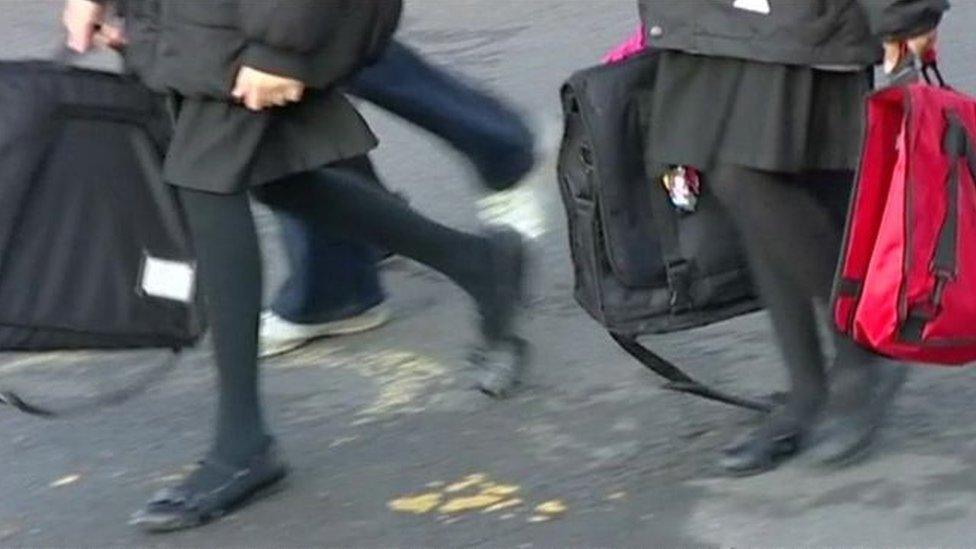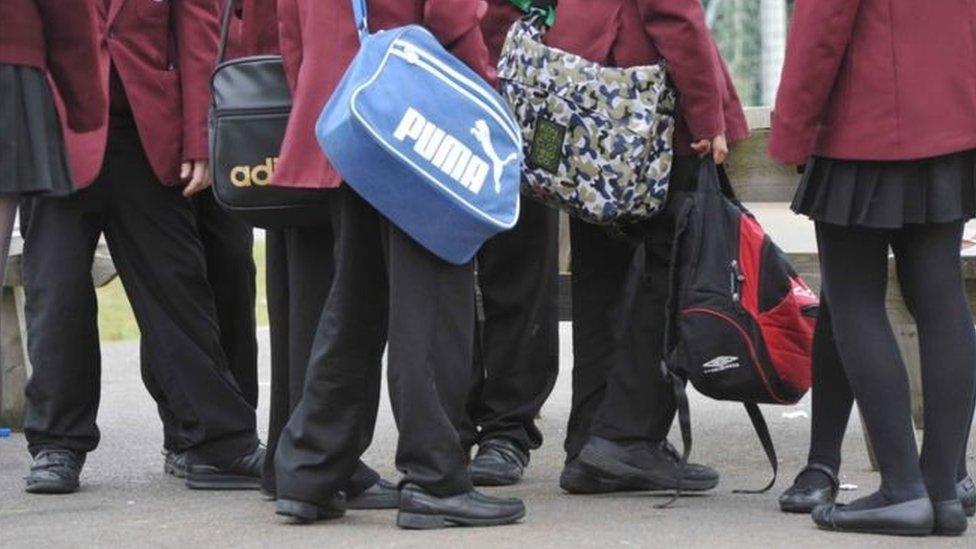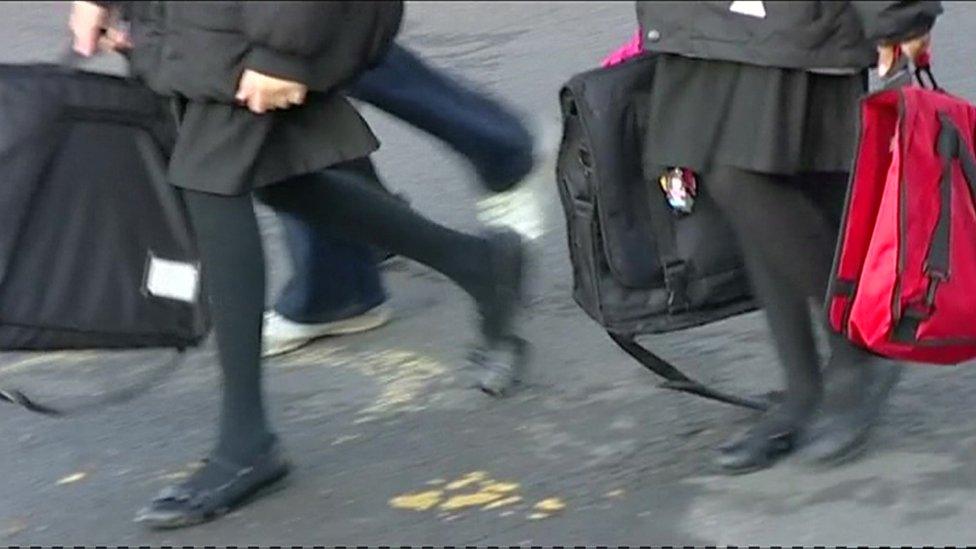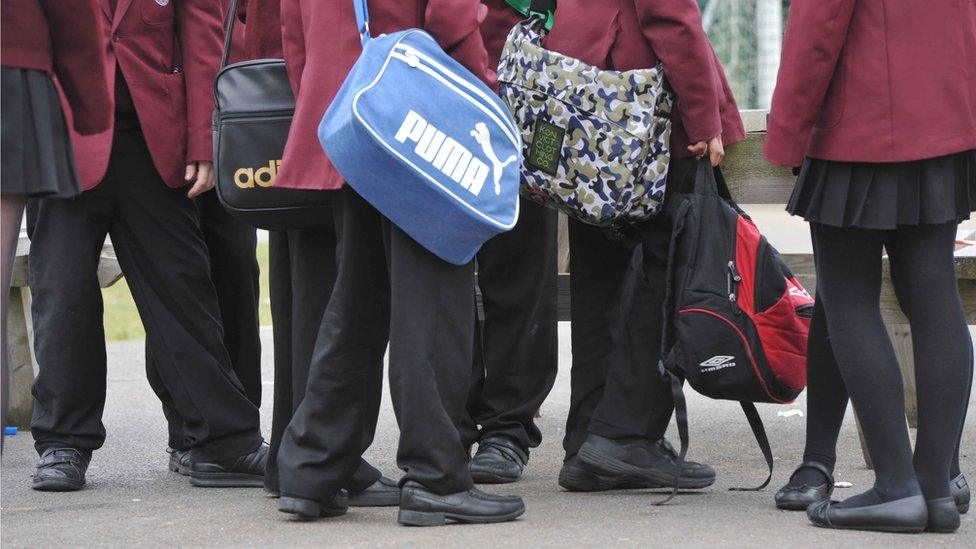Ministers criticised over school sexual harassment response
- Published

Ministers are facing criticism for rejecting calls for statutory action to tackle sexual harassment in schools.
In September, the Commons Women and Equalities Committee called for legislation requiring all schools in England to develop a "whole school approach" to tackling the issue.
The Department for Education published a formal response on Tuesday.
It said the legal framework dealing with issues of equality, safeguarding, curriculum and behaviour was "strong".
While it acknowledged that more could be done to clarify how it applied to sexual violence and harassment, it indicated that it did not support legislation.
"Instead, we propose a holistic school-based approach, which will support schools to tackle this issue," it said.
"We will do this through three new areas of work: supporting schools to produce their own new codes of practice, building our evidence base, and setting up an advisory group."
The Women and Equalities Committee had also called in its report for sex and relationships education (SRE) to become a statutory subject in schools.
On this, the DfE noted the existing guidance had last been updated in 2000 and the case for action was "actively under review, with particular consideration to improving quality and accessibility".

'Urgent response'
Conservative former cabinet minister Maria Miller, who chairs the committee, said: "The scale of the problem of sexual harassment in schools demands a robust and urgent response from those who take responsibility for our children's safety when they are at school.
"Schools are responsible for fostering the best environment for young people to learn; fear of sexual harassment, or worse, should not be part of that.
"We will continue to scrutinise action in this area and work with others to hold those responsible to account for any failure to ensure that all our children are safe and can thrive at school.
"In particular the government needs to prioritise action to ensure sex and relationship education reflects the realities of the 21st Century rather than the pre-smartphone age, when guidance was last updated."
In its report, the committee said:
29% of 16- to 18-year-old girls had experienced unwanted sexual touching at school
71% of pupils regularly heard girls referred to as "slag" or "slut"
Shadow women and equalities secretary Sarah Champion said the government needed to ensure there was up-to-date, statutory, age-appropriate relationships and sex education in England's schools.
"The government must bring in legislation to ensure every school takes action to prevent and respond effectively to sexual harassment and sexual violence," she said.
"The findings of the committee demonstrate that the government's failure to do so is putting children and teenagers in the way of physical and psychological harm."
The DfE's response drew criticism from the Girlguiding association.
Its advocate panel issued a statement saying: "We are among the girls and young women across the country who have been severely let down by the government's response today.
"We feel the government has missed a crucial opportunity to make schools safer for all young people, by not going far enough in their action to tackle this issue."
The NSPCC children's charity said the government's response to the committee fell short of the "robust action plan" it had hoped for.
"We know through calls to Childline that sexual harassment, and even abuse, in schools is something that many pupils up and down the country suffer on a daily basis," the charity said in a statement.
"We also know it can be prevented when pupils, parents, and schools are given enough support and education."
Lisa Hallgarten, co-ordinator of the Sex Education Forum, said: "We believe the case for statutory SRE has been made very powerfully over a number of years and is settled.
"There is abundant evidence that good quality SRE helps protect children and young people and can positively impact on sexual behaviour; and that current delivery of SRE is patchy and often inadequate to meet the needs of children and young people."
- Published13 September 2016

- Published7 June 2016

- Published10 August 2016
